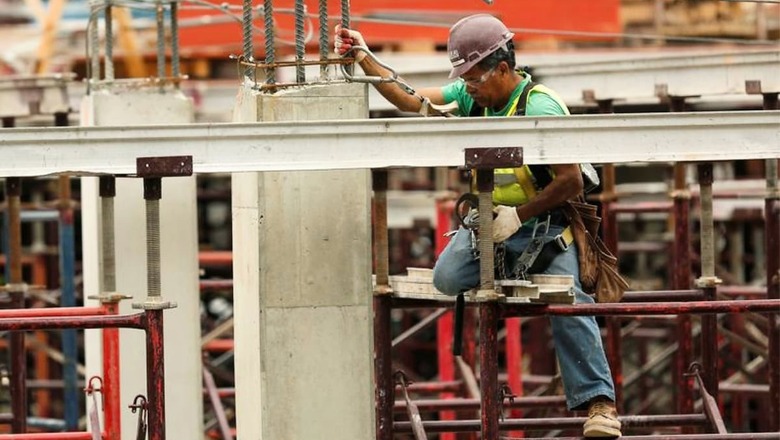
views
The champions of liberalization often rue the fact India never had statespersons like Margaret Thatcher and Ronald Reagan, leaders for whom opening up the economy was not just a matter of expediency but an article of faith. More unfortunate, however, is the fact that we never had an Ayn Rand, a Milton Friedman, and a Fredrick Hayek—the intellectual giants who helped create a climate of opinion to make the conservative revolution of the 1980s possible in the first place. Such a revolution didn’t happen in India; its public discourse remains polluted with socialist dogmas; this has ruled out an ecosystem that can produce politicians devoted to the market economy.
Worse, our liberalizers, like our politicians, saw economic reforms as an instrument to kick-start a dysfunctional economy, which was the case in 1991. The champions of reforms never accepted the fact—at least they never said that in public—that socialism is inherently flawed (if not downright evil) and that capitalism is the natural system of economy.
I don’t want to malign them or highlight their shortcomings. Quite the contrary: I believe that the champions of reforms played a heroic role by chalking out policies which they also managed to sell to their political bosses. Public intellectuals and professional revolutionaries lambasted and lampooned them as the stooges of ‘neo-imperialist’ forces, multinational corporations, etc., but the liberalizers stoically faced the vilification.
It is, however, indisputable that their approach was efficiency-oriented: they had the thoroughness of technocrats, not the zeal of revolutionaries. So, they aimed to dispense with the worst features of socialism, not socialism per se (Indeed nobody in our country has problems with this discredited ideology; this is the reason that the preamble of our Constitution still calls India a “socialist” republic).
ALSO READ | Like 2020, Narsimha Rao Govt Too Faced Resistance To 1991 Economic Reforms
One of the pillars of economic policy in the 1990s wrote in a book: “Too often in India, a debate on economic policies becomes a debate on economic theory and ideology. Is liberalization theoretically superior to government intervention or is it not? Is globalization consistent with national sovereignty or is it not? Is reform of the public sector consistent with our socialist ideals or is it not? This is a sterile debate.”
Notice that the grandee had no ideological or theoretical problems with socialism; notice “our socialist ideals.” His approach was guided by the logic of efficiency—“a more efficient and productive economy … is good for the poor.”
This approach is diametrically opposite to that of Milton Friedman’s. The American economist wrote: “It is important to emphasize that economic arrangements play a dual role in the promotion of a free society. On the one hand, ‘freedom’ in economic arrangements is itself a component of freedom broadly understood, so ‘economic freedom’ is an end in itself to a believer in freedom. In the second place, economic freedom is also an indispensable means toward the achievement of political freedom.”
China is a case in point. For decades there was economic freedom (as much as that can be possible in a socialist nation) without political freedom; it is vanishing now, Jack Ma’s tribulations being symptomatic of that. Liberty is indivisible: you can’t have it in one walk of life without having it in another.
Since the Indian liberalizer promotes reforms as a means towards our socialist goals and not as a goal, he often pleads with Leftists to seek their approval for, or at least condonation of, reforms. After all, these are the folks who lord over public discourse. His supplication is on these lines: look, we don’t believe in your ideology but we concede that its goals are laudable; and, by the way, these are also our goals. Since the economic system we believe in actually helps achieve your goals such as poverty eradication, let’s bury our differences; we admire your goals, you support our methods; so, please appreciate the efficacy of the market economy. This is the sum and substance of their message to their ‘Leftist friends.’ The latter, however, disdainfully rebuff such entreaties. The liberalizer proposes, the socialist disposes.
Still worse is the nationalist apparatchik, who has blindly accepted and unquestioningly internalized the invidious socialist dogmas, and ends up parroting Leftist lies. In fact, Swadeshi fanatics have proved to be bigger and more dangerous opponents of liberalization. It may be mentioned here that when earlier the Bharatiya Janata Party was in office under Atal Bihari Vajpayee, the Swadeshi supporters raised a stink over, among other things, privatization. They still do that.
ALSO READ | India Can’t Wait for the ‘PSU Culture’ to Die a Slow Death. It’s Time for Unsparing Reforms
In the West, there are giants on the Right—Rand, Friedman, Hayek, Ludwig von Mises, Leonard Read, Thomas Sowell, et al—not only promoting capitalism but also presenting it as something integral to liberalism and democracy. In our country, on the other hand, we have Swadeshi ideologues who are opposed to almost every liberalizing measure, be it privatization, foreign direct investment, or labour reforms.
One reason for such an unfortunate situation is that while the West has a rich tradition of liberalism at least going back to the 17th century (John Locke), modern India has remained committed to nationalism, socialism, and now a mix of the two with shades of saffron added to it. This commitment manifests itself in politics, economy, culture, and (from the perspective of this article) public discourse.
India’s liberalizers have done a great job in the last 30 years; now is the time for public intellectuals to shed their pinkish dogmas and shibboleths, and detoxify the climate of opinion.
Read all the Latest News, Breaking News and Coronavirus News here.




















Comments
0 comment